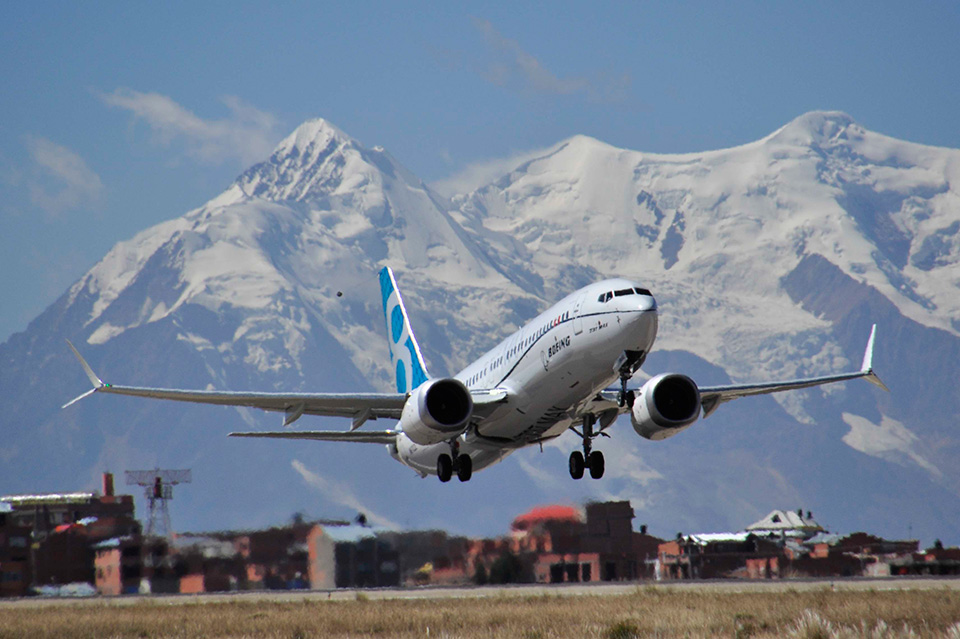Boeing to brief over 200 pilots and experts on 737 MAX plans
24 March, 2019
4 min read


Boeing has invited more than 200 pilots, technical leaders and regulators to a briefing Wednesday on its plans to safely return its grounded 737 MAX fleet to service.
The informational sessions at the Renton, Washington, home of the 737 is part of the company’s effort to share more details about its plan to get the grounded 737 MAX fleet back in the air.
It comes after American pilots said last week they were expecting to test Boeing’s software fix on simulators over the weekend in a session that also sought feedback from personnel from other airlines affected by the grounding.
Boeing described the session as productive and it planned to reach “all current and many future MAX operators and their home regulators”.
“At the same time, we continue to work closely with our customers and regulators on software and training updates for the 737 MAX,’’ it said, adding that it was paying for the development of the updates.
The planemaker earlier said it had been "working diligently and in close cooperation with the Us federal Aviation Administration on the software update.
READ: Reports that 737 MAX safety options are lucrative are nonsense
“We are taking a comprehensive and careful approach to design, develop and test the software that will ultimately lead to certification,’’ it said.
The Wall Street Journal reported Saturday that US regulators had already "tentatively approved" the software and training changes but a Boeing spokesman said the software could still go through revisions.
Boeing has also put the enhanced software through its paces on an 80-minute test flight.
It began working on changing pilots displays, operations manuals and crew training relating to the new software after the crash in Indonesia last October of a Lion Air plane with 189 passengers and crew.
The pilots were still fighting the aircraft as it plunged into the ocean off Jakarta after the software, known as the Maneuvering Characteristics Augmentation System (MCAS), repeatedly pushed down its nose because of incorrect information from a single angle of attack sensor.
However, they failed to follow an established procedure that would have allowed them to shut off the system by flicking two switches.
The global 737 MAX fleet was grounded after a second crash involving the type on March 10 involving Ethiopian Airlines.
The FAA resisted grounding the planes even as other regulators took the step on the grounds there was at that stage no data suggesting the move was necessary.
It did so after new information became available on the Ethiopian crash that indicated similarities with the Lion Air accident.
Ethiopian investigators have yet to release a preliminary report on the crash and it is not yet clear whether MCAS, which was designed to help pilots when approaching an aerodynamic stall, was involved.
The software is being updated to allow access to more than one angle of attack sensor input, limit the number of stabilizer trim commands when the software receives an erroneous AoA reading and provide a limit to the stabilizer command to allow pilots to retain elevator authority.
The changes are designed to make the system less aggressive and mean it will not activate due to faulty reading from one AoA sensor.
Boeing is also understood to be making standard on the MAX a system that tells pilots when the two angle of attack sensors are not giving the same reading. That system had previously been an option.
The move comes as the company and the FAA face audits of the process used to certify the aircraft and questions about its lobbying in Washington.
US politicians are looking at whether too much of the certification process was handed over to Boeing.
The FAA told The Wall Street Journal that it had been repeatedly directed by Congress to streamline certification.
This included delegating some safety certification tasks under a program introduced in 2005, the Organization Designation Authorization program.
But it added: “FAA has never allowed companies to police themselves or self-certify their aircraft.
“The use of delegation has been a vital part of our safety system since the 1920s, and without it, the success of our country’s aviation system likely would have been stifled.”
Get the latest news and updates straight to your inbox
No spam, no hassle, no fuss, just airline news direct to you.
By joining our newsletter, you agree to our Privacy Policy
Find us on social media
Comments
No comments yet, be the first to write one.

